


flag of modern India
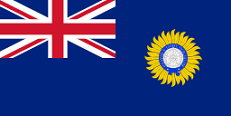
flag of Northwest Provinces, British India
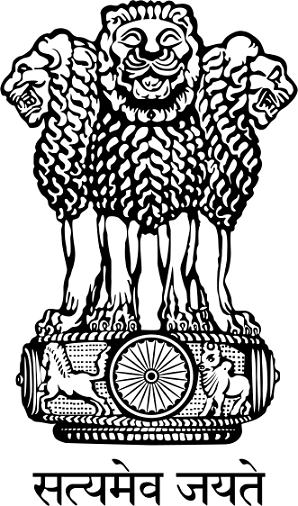
COHORT
father of
-
India-PM 1917-1984 Martial Law Indira Gandhi
grandfather of
-
India-PM 1944-1991 Rajivaratna Gandhi
younger colleague of
-
Satyagraha 1869-1948 Mahatma Mohandas Gandhi
-
Gitanjali 1861-1941 Rabindranath Tagore
fractious relationship with
-
UK-PM Finest Hour 1874-1965 Winston Churchill
born 7 months after
-
Germany-dictator 1889-1945 Nazi Adolf Hitler
born 11 months before
-
POTUS-34 Interstate Highways 1890-1969 Dwight D. Eisenhower
born 12 months before
-
Foursquare Evangelist 1890-1944 Aimee Semple McPherson
born 13 months before
-
France-Pres 1890-1970 Mémoires de Guerre Charles de Gaulle


Prime Minister of India
[
attorney
social-change activist
independence leader
negotiator + author + ruler
Earth-birth Thursday-14-Nov-1889
dematerialization 27-May-1964 [age 75]
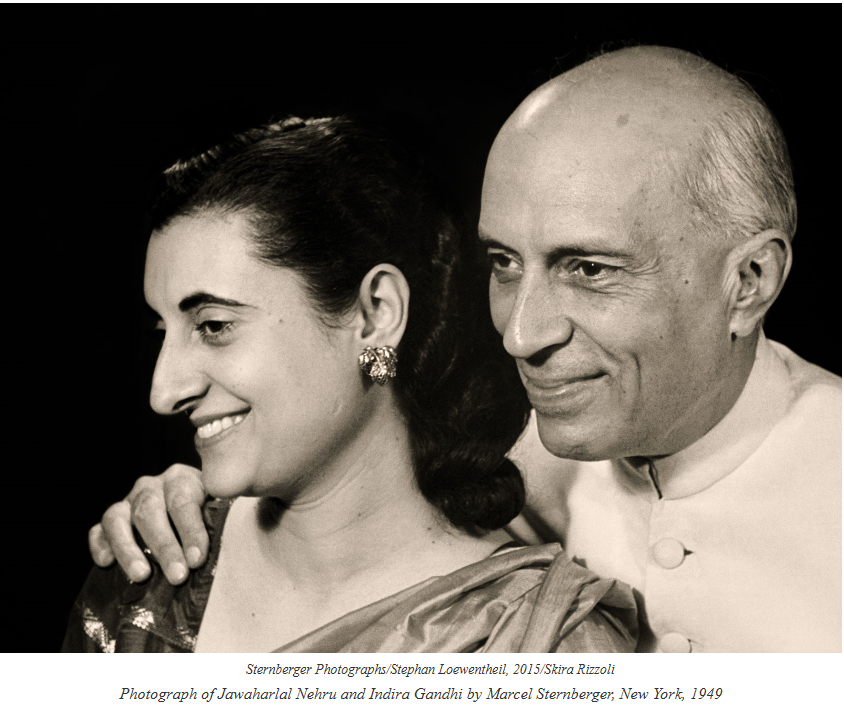
JN with his only child, India-PM 1917-1984 Martial Law Indira Gandhi

historian
First Prime Minister of Independent India
[
Jawahar Lal Nehru
1889-1964 -CE
birth data from en.wikipedia.org/wiki/Jawaharlal_Nehru
tentatively rectified by BP Lama Jyotishavidya
charts + graphs + tables = produced by Shri Jyoti Star - www.vedicsoftware.com
- adapted by BP Lama
Rising Nakshatra
Masculine Public-Figure Examples
Nirriti - Alaxmi
BPL COMMENTARY
For Mula births of a masculine valence, the condition of limitless, observing, uncoupling, surrendering, abandoning, disinterested, ethereal, wandering, spacious, dispersing Ketu may considerably affect the outcome.
For those born into the Ketu-ruled paradigm of Alaxmi, spirit guides, astral beings, ghosts, pilgrims, wanderers, cutters, dispersers, splitters, de-couplers, winds, flags, tails, cloudy figures, agents of impermanence and release, events of forgiveness and surrender, freedom from conventions, disregard of consequences, and inner listening may be especially influential.
Instructional guidance is provided by emissaries from the civilizations of Al-Shaula.
Their purpose is to disintegrate, disconnect, disperse, and deconstruct those phenomena which have become obstacles to greater understanding.
Fearless Deconstructivism
Mula gentlemen are inspiring in their fearlessness . Alaxmi are concerned with absolute principles of conviction, not with material outcomes.
Although apparently optimistic and genial Guru-ruled personalities, nairriti are constitutionally aligned with destabilizing power vacuums, disintegration of outdated structures, and large-scale disorientation. Pilgrims of wandering spirit, mula have little regard for boundaries, customs, or consequences. They go easily where angels fear to tread.
Mula has a natural veneer of faith and generosity due to Brihaspati's Benevolence. Often appearing as father-figures, patriarchs, patrons, preachers, and philosophers, masculine Mula may present as pastoral shepherds who are paternally guiding their lost sheep.
In times of inattentive negligence or mass psychic distress, shri Ketu's polarity vacuum may suck an enormous degree of power - sometimes, absolute power.
Mūla's outlook often features a liberating mix of ambivalence and apathy. Free from self-doubt, and disinterested in moral conventions, those born in Alaxmi may consciously or unconsciously guide their flocks into states of higher wisdom.
Yet, the sacred must be sacrificed. In a world with few meaningful limits, depravity, destruction, cruelty, and chaos may better suit Ketu's purpose than compassion, understanding, or human love.
Because Alakshmi-born preach their principles while dismissing [Ketu] the material consequences of applying those beliefs, they are generally freed from worry. They are cheerful folk, even in the most dire circumstances. They do not fear death.
When involved in religious or political indoctrination, [Mūla] born may expound an eschatology of annihilation. Unlimited destruction may be the preferred path toward full purgative cycle of regeneration.
Niritti (no-rhythm) may be associated with heart-stopping shock and awe or scorched earth or eradication campaigns that are aimed to destroy the root.
Having usually no fear of death, mula may nonchalantly engage in self-destructive behavior as well as in evacuation, elimination, or eradication of others - often on a large scale [Guru]. Religious or ideological patronage may be essential to their mission.
Mula gentlemen are found in the worlds of sacred wisdom, inspirational guidance, cults of belief, and radical indoctrination. They may conduct zero-sum operations within military orders, priesthoods, politics, and organized crime.
Mūla-born health may be affected by restless windiness (vata dosha).
Themes of annihilation, apocalypse, extreme chaos followed by absolute peace, and fearless disregard of consequences may contextualize Mūla's terrestrial experience. Applies also to Chandra in Mūla
QUOTATION Mūla
from Shil-Ponde.(1939). Hindu Astrology Joytisha-Shastra . p 86.
" ... a shrewd and capable character - an organizer,
-
who is able to handle people
-
and make them serve his needs through tact and diplomacy.
A politician.
An orator who is capable of swaying his audiences
-
yet who is not sincere
-
but may even be unfaithful to his constituents
-
and ungrateful and unappreciative of favors received if the occasion arises.
The type of person who, while one is still in his presence, holds one spellbound;
-
but who when he leaves, also leaves a lurking distrust behind him.
Extremely clever and capable ."
[end quote, Shil Pondey, 1939]
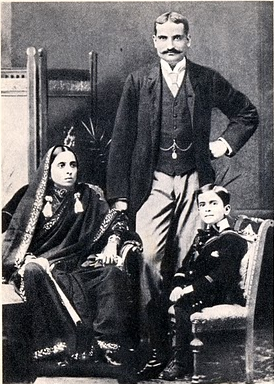
Jawahar Lal Nehru with his mother and father, c. 189x

Motilal Nehru, prosperous barrister in the High Court of Allahabad = father of India's Prime Minister Jawaharlal Nehru
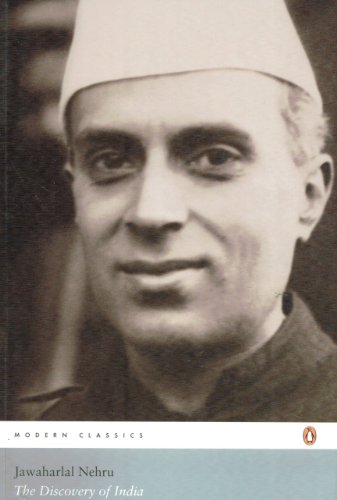
en.wikipedia.org/wiki/Swarup_Rani_Nehru
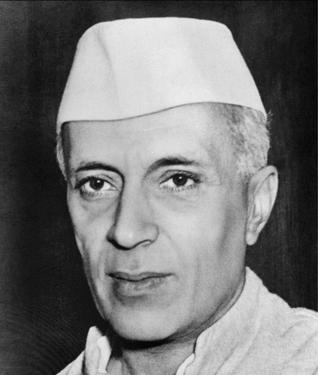 Biographical data matched to
Vimshottari dasha
calendar
Biographical data matched to
Vimshottari dasha
calendar
-
India-PM 1889-1964 Toward Freedom Jawaharlal Nehru
[Shani mahadasha] = [age birth until age 8.2]
-
[Shani-Simha] = [Shani in Bhava-9]
Thu-14-Nov-1889 = Earth-birth in Allahabad, North-Western Provinces, British India [now Prayagraj, Uttarpradesh, India ] * Shani-Surya bhukti
[Budha Mahadasha] = [age 8.2 until age 25.2]
-
[Budha-Tula] = [Budha in bhava-11] + [Svati-Budha-yuti-Surya-Viśākha -nīcha] + [Svati-Budha-yuti-Shukra-Svati]
1903 [JN age 13] initiated into Theosophical Society by Annie Besant * Budha-Shukra bhukti * Shukra rules 11 social-network, group-links
1905-1907 [JN age 16-17] two-years at Harrow boarding school, university preparatory study * begin Budha-Mangala bhukti until Budha-Rahu bhukti * Mangala rules 12-dormitories, foreign lands
Oct-1907 [JN age 18] enter first-year undergraduate studies at Trinity College, Cambridge * Budha-Rahu bhukti * Rahu's ruler Budha studies
1910 [JN age 22] earned honors A.B. diploma in Natural Sciences from Trinity College, Cambridge * Budha-Guru bhukti * Guru rules 4-diploma
1912 [JN age 23] completed law study + admitted to the practice of Law in Britain ** Budha-Guru bhukti * Guru rules 4-diploma
[Ketu Mahadasha] = [age 25.2 until age 32.3] [1915-1922]
-
[Ketu-Dhanus] = [Ketu-1] + [Apah-Guru-yuti-Ketu-Mūla]
08-Feb-1916 [JN age 27] consecration of wedding-1-of-1 with Kamala Kaul * Ketu-Shukra bhukti ++ R-K gochara Makara-Karkata contact navamsha R-K ++ contact Chandra-Karkata ++ janma Sade-Sati
Aug-1916 until Sep-1918 Janma Sade-Sati Karkata
- [8 cataclysmic upheaval, sudden unexpected identity change, healing transformation, revolutionary recycling energies, rejuvenation, entrancement, mystery, discovery, initiation, secrets]
- [age 27-30]
19-Nov-1917 [JN age 28] celebrated the birth of child-1, Indira Gandhi * Ketu-Guru bhukti ++ janma Sade-Sati + Rahu-opp
[Shukra Mahadasha] = [age 32.3 until age 52.3] [1922-1942]
-
[Shukra-Vanika] = [Shukra-11] = [Yogakaraka] [Svati-Shukra-yuti-Surya-Viśākha -nīcha] + [Svati-Shukra-yuti-Budha-Svati]
1930-1933 [JN age 42] force to isolate in prison , JN forms key relationships with other decolonizing revolutionary figures * Shukra-Rahu bhukti
06-Feb-1931 [JN age 42] grieved the bio-decease of father, Motilal Nehru * Shukra-Rahu bhukti
1934 [JN age 45] publication of free-format historiographical letters, Glimpses of World History * Shukra-Shani bhukti * Shani rules 3-publishing
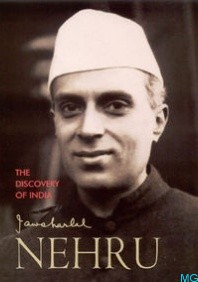 1936
[JN age 47]
publication of autobiography
Toward Freedom *
Shukra-Shani bhukti * Shani rules 3-publishing
1936
[JN age 47]
publication of autobiography
Toward Freedom *
Shukra-Shani bhukti * Shani rules 3-publishing
Jan-1938 [JN age 49] grieved the bio-decease of mother, Swaroop-Rani Thussu Nehru * Shukra-Shani bhukti * Shani rules 7th-from-matrikaraka Chandra
28-Feb-1939 [JN age 51] grieved bio-decease of wife, Kamala Kaul Nehru * Shukra-Budha bhukti * Budha rules 12th-from-Shukra
[Surya Mahadasha] = [age 52.3 until age 58.2] [1942-1948]
-
[Surya-Vanika] = [Surya in bhava-11] = [nīcha-Viśākha -Surya-yuti-Budha-Svati] + [nīcha-Viśākha -Surya-yuti-Shukra-Svati]
1942-46 [JN age 53-57] in prison * Surya-Mangala until release during Surya-Ketu bhukti * Mangala rules 12-imprisonment ++ dvadasa-janma Sade-Sati
Sep-1945 until Jul-1948 Janma Sade-Sati Karkata
- [8 cataclysmic upheaval, sudden unexpected identity change, healing transformation, revolutionary recycling energies, rejuvenation, entrancement, mystery, discovery, initiation, secrets]
- [age 57-60]
1947 [JN age 58] publication of JN's celebrated history [composed while in prison] Discovery of India * Surya-Shukra chidra-dasha * Shukra-yuti-Budha publications ++ janma Sade-Sati
15-Aug-1947 [JN age 58] inaugurated as First Prime Minister of Independent India * Surya-Shukra chidra-dasha * Shukra-11 rules 11-attainments, goals + Surya rules 9-elections ++ janma Sade-Sati
30-Jan-1948 [JN age 59] in a climate of intense ethnic strife, assassination of key Independence leader, Mohandas Gandhi * Surya-Shukra chidra-dasha * Shukra rogesha conflict also rules 2nd-from-10 = death of a leader ++ janma Sade-Sati
[Chandra Mahadasha] = [age 58.2 until age 68.2] [1948-1958]
1950 [JN age 60] following Mahatma Gandhi murder, ongoing chaos with sectarian violence * Chandra-Rahu bhukti +Rahu in identity-dissolving 12th-from-Chandra
[Mangala Mahadasha] = [age 68.2 until decease age 75] [1958-1965]
1962 [JN age 73] health begins a precipitous decline * Mangala-Ketu bhukti * Ketu collapse, exhaustion
27-May-1964 [JN age 75] blessed liberation from the Earthen-body, via aneurysm * Mangala-Surya bhukti * [nīcha-Viśākha -Surya-yuti-Budha-Svati] * maraka Budha rules 7
-
India-PM 1889-1964 Toward Freedom Jawaharlal Nehru
[Sparkling Splendid Surya]
pitri-karaka [father] -- jyoti-karaka [light]
= [nīcha]
[philosophical-doctrinal dharmesha for Dhanus-born]
- check Shukra + Shukra-drishti to source Surya's deftly arranging intelligence, meddlesome dramatics, deal-brokering showmanship
[brightly gracious center of friendship]
[confidently focused on balanced earnings]
[Dhanayoga = ruler of 11th-from-11 occupies 11]
...
[collaborative-instructional Viśākha-3] = [navamsha Surya-Mithuna] intuitively businesslike, smoothly administrative, collaboratively political
[ātmakāraka politics, intelligence, self-confidence, romantic idealism, central roles]
+ [Viśākha-Surya-yuti-Budha-Svati]
+ [Viśākha-Surya-yuti-Shukra-Svati] handsome
combined rulers of 5 + 6 + 8 + 9 + 10 occupy 10-elite command + intake drishti of risk-rewarding Rahu-6
-
[Surya-Vanika] [Hiranya-garbha - golden fetus] brightly charismatic confidence of Center-stage Surya radiates through the bargaining deal-making rashi of Shukra
-
[Surya in bhava-11] center of community * genius for associative systems * radiates through the gridwork * entitled to work-and-earn * network intelligence * focus on interlinked ecologies * uniquely creative marketplace revenues * exemplifies knotting-netting-knitting connectivity * distributed light * eye on friendships * celebrated by crowds * sparkling star of social-economic drama* goal-oriented father may be earner, socialite, electrician, group-organizer
-
[Surya-yuti-Budha] confidently conversational* brightly explaining messenger * entitled to discuss * creatively intelligent sibling-cohort * discursive father-figure * gestures conduct the spiritual rays of the Sun * radiantly descriptive * articulate in drama * skillful game-player * self-confident announcements * talks about ideals * narrative of power-politics * recites love poems * describes divine romance
-
[Surya-yuti-Shukra] confidently harmonious * brightly creative bargainer * uniquely intelligent feminine-figures * entitled to pleasures * aesthetic expressions align with the spiritual rays of the Sun * financial politics * graciously creative * dramatic promises * radiantly diplomatic * self-reflexively attractive * handsome father may be artist, broker, arranger
OUTCOMES - MAGNIFICENT MARTANDA
self-reflexively interlinked, brightly connected, charmingly friendly, regal style of maintaining community, intelligently goal-focused, creatively independent earnings, radiantly achieving, politically networked, splendidly associative, center-stage socialite icon [Surya in bhava-11] rules
-
9-ideology , paradigm of belief, profession of faith, principled convictions, higher understanding, father-figures, priestly patronage, preaching, patriarchal entitlements, philosophical convictions, theory, public spiritual guidance, celebrated doctrines, sangha, sacred teachings, credenda, globalism, dharma, worldview, weltanschauung, mother's health
CAREER - SPARKLING SURYA
incoming Parashari drishti from both Shani and Rahu
- receives disciplined, restricting drishti from Shani-Simha-8
- risk-rewarding, ambitious, taboo-challenging drishti from Rahu-Mithuna-6
EDUCATION
Surya-Budha-Shukra = combined rulers of 5 + 6 + 8 + 9 + 10 occupy Tula 4th-from-Chandra = 10-elite command + intake drishti of risk-rewarding Rahu-6
The son of a wealthy barrister, JN enjoyed an elite university education [4] in Natural Sciences.
LAW PRACTICE and POLITICS
Following his father's trade, JN qualified as a London-trained attorney. Yet, JN found the lawcourts of Allahabad to be parochial and petty - due to impatience of internationally educated, literate, and critical-thinking [Kuja-Kanya-9]
JN turned to the intractable problems of Bharati colonial politics for intellectual relief from lawyer's boredom. [Surya rules Shani-Simha intractable political problems +++ Shani-8 fixed-political-dangers also casts drishti upon Surya-Tula-10]
FATHER
Dad = Motilal Nehru = [b. 06-May-1861, d. 06-Feb-1931]
India-PM 1889-1964 Toward Freedom Jawaharlal Nehru [diplomatic-brokering Pushya-3] Dad = revenue-earning lawyer in the High Court of Alllahabad. Dad also held a representative seat in the pro-independence Indian Congress [11, social-participation networks].
An international traveler with profound ties to UK, dad became notably entreasured. [Surya-yuti-Shukra ++ Kuja-9 rules 11]
Both of JN's parents supported him completely into mature adulthood. They deceased during JN's forties.
[Comfortable Caretaking Chandra]
matrikaraka [mother] -- garha-karaka [village]
= [svakshetra] = [mysterious-initiatory randhresha for Dhanus indriya-lagna]
[comfortable with emotionally disruptive change]
[sympatheticly pushes into rejuvenating randhresha crisis]
[sentimentally attuned to ancient initiatory cycles]
- [folk-reputation 10th-from-Chandra = heroic politics, warlike drama, conquest entitlements, championship gambling Mesha-5]
[habitual rhythms stabilize hidden feelings]
[familiar places give impetus for emotional healing]
[needs to feel deep watery immersion in catalytic rebirth randhresha ]
[soothed by sudden maternal revelations]
[volatile caretaking impulse may suddenly stop-and-start]
[undulating protector of local healers randhresha]
[intuitive cultivator of ancestral secrets]
[eruptive mood cycle spectrum from soothing shelter to terror]
[sensitively responsive to cultural shocks]
- [at some juncture in the lifespan, previous ethnic rituals utterly die, catalyzing sudden rebirth into new healing rhythms]
[traumatized gardening mother may be inscrutably moody]
[environmentalist mother's dwelling may suddenly fluctuate]
[householder mother may alternate as disguised farmer, mysterious ritualist, unpredictable custodian]
...
[negotiating-diplomatic Pushya-3] = [navamsha
[Chandra-Tula] intuitively sensitive diplomatic-arranging-bargaining
-
[Chandra-Karkata] comforted by maternal soothing * settled into tidal rhythms * needs to protect
-
[Chandra in Pushyami] soothed by lawful customs * protectors of the ethno-social structure * needs dignified orderly habits
-
[Chandra in classroom-8] comfortable with crisis * familiar with catastrophe * unpredictable mother * feels the pulse of cyclical rebirth * soothed by secrecy * consoled by calamity * sensitive to danger * revolutionary sentiment * accustomed to frequent upheaval * seeks deeply rhythmic initiation * acculturated to masked exploration * occult sensitivities * needs eruptive energies * nourished by non-disclosure * emotionally attuned to trauma * undulating shakti-shocks * mother may be a mystic, healer, concealer, agent of disguise
OUTCOMES - ANCESTRAL SOMA
sentimentally undisclosing, emotionally secretive, caretaker in dangerous situations, needs chaotic feelings, securely grounded through disastrous upheaval, anchored into sudden emergency response, sensitive to disguised dependencies, protected by camouflaged assets, sense of having hidden empowerments [Chandra in classroom-8] rules
-
8-unexpected eruptions of regenerating force, occult initiation, mystical revelation, shocking intervention, opaque empowerments, invasive surgery, intensive healing, evolution, violent explosion, sudden identity change, rejuvenation, recycling, rebirth, hidden assets, upheaval, undisclosed secrets, transformative events, discovery, in-laws of first marriage, health of younger sibling-cousin
CAREER - CARETAKING CHANDRA
- [folk-reputation 10th-from-Chandra = heroic politics, warlike drama, conquest entitlements, championship gambling Mesha-5]
CHANDRA in 12th-from lagnesha SHANI
emotional needs often invisible due to work pressure and fear of change
- India-PM 1889-1964 Toward Freedom Jawaharlal Nehru the rhythmic pulse of yearning for a politically independent India was invisible [12] for many generations. Various passionately imaginative Independence schemes came and went.
- Overall, the public feared change [Shani-8 Simha politics] The vast populace were immersed in their ancestral rituals [Chandra].
- Then during the intense psycho-emotional pressure of janma Sade-Sati, unexpectedly, the dream manifested. UK financial exhaustion following WW-2 caused British occupation to be an unbearable expense, and Independence became a reality .
MOTHER
Mom = Swaruprani Thussu Nehru
MARRIAGE partnership emotional equity support expectations
[7th-from-Chandra-8] lifepartnership 1-of-1
- bhava-2 family lineage, genetics, heritage values, traditional language, food, assets, financial storage
- Makara social dignity, class-status, reputation, respect, social approval, governance, regulation
The Nehru marriage was properly conducted and socially respected [spousal arrangement invests into Makara-2].
Focus of caretaker spouse's emotional attention is upon the family and its lineage assets [2]. KK provided full support to her socially prescribed duties while loyally parenting their child. She was comfortable in the heritage roles of preserver, banker, curator of historical knowledge, speaker-and-singer, values maintainer.
[Competitive Champion Kuja]
bhratru-karaka [brother] -- virya-karaka [virility]
= [dikbala]
[witty-creative vidya-pati for Dhanus - Haya indriya-lagna]
[contemplative-retreating vyaya-pati for Dhanus - Haya indriya-lagna]
- check Budha + Budha drishti to source Kuja's precisely logical actions, argumentative forward-push, critical investigative pursuit
[proactively competitive executive polemic]
[intelligently vidya-pati energized detailed government strategy]
[innovative informative regulatory litigation]
[institutional champion of medical progress]
[leads with pro-actively argued social engineering policies]
[mentally strategic orderly warrior dominates public conflicts]
[fights for executive authority using tools of logical reasoning]
[weaponized verbal tactics energize upward climb]
[vigorous backchannel accusations behind-closed-doors vyaya-pati]
[prominent brother-cousin may undertake physical service ministry]
...
[fantasizing-conceptual Uttaraphalgunī-4] = [navamsha Mangala-Meena] intuitively competitive forward-pushing imaginative clairsentient drive
-
[Mangala-Kanya] penetrating logic * proactive helping * thrust toward service * energetic assistance to the needy * pushy complaints * [potentially] vindictive * champion of litigious accusation * military planning * aggressive indictments * investigative journalism * medical treatment interventions
-
[Mangala in bhava-10] drive toward high position * pursuit of social authority * fights for rank * competes for top status * invasive regulation * hierarchical dynamics * dominating executive roles * energized governing conquests * champion of leadership elites
OUTCOMES - MOVING MANGALA
commercially competitive, self-promoting project manager, socially recognized announcements, forward-pushing sales career, militarized executive marketer, social regulator via active communication, talking head, leadership in energetically innovative publications, champion of professional information delivery [Mangala in bhava-10] rules
-
5- Politics, center-stage roles, theatre, demonstration, display, charming brilliance, genius, poetry, choice-making, showmanship, gambling and gamesmanship, romantic idealism, creativity, fashion-shows, flamboyance, celebrity entitlements, confidence, artistic performance, drama, children, financial speculation, intelligence, entertainments, fun
-
12 enclosures, the bed, fantasies, privacy, interior spiritual guidance, clandestine undertakings, intuitive awareness, non-linear conceptual undertanding, concealment, seclusion, invisibility, dissolved identity, meditation, contemplation, dreamworlds, astral plane, imaginary scenarios, sanctuary sleep, distant lands, distress of the avowed partner
CAREER - COMPETITIVE KUJA
ruler of 12 occupies 10
although it = source of endless argument and accusation, JN's leadership honored the vast imagery of an ancient civilization, which was encased in its symbolic beliefs [12]
[Mangala in bhava-10] rules political Mesha-5 = familiar-to-the-public 10th-from-Chandra
[Mangala-Kanya] = yogakara from Chandra lagna
JN held the PM-portfolio for 16+ years, encompassing his Chandra Mahadasha and Kuja Mahahdasha
he died in Rahu-Rahu svabhukti
SCHOOLING and FATHER
The son of a wealthy barrister, JN enjoyed an elite university education [4] in Natural Sciences.
Kuja-9 bandesha, although aggressively logical and gifted in analysis, is located in 6th-from-4 showing some mistreatment by schoolteachers and a pushy, criticizing father.
[Busy Bantering Budha]
jamayah-karaka [sibling] -- sandesha-karaka [message] -- shisya-karaka [student]
[bargaining-trading yuvati-pati for Dhanus - Haya indriya-lagna]
[dutiful-executive karmesha for Dhanus - Haya indriya-lagna]
- check Shukra + Shukra-drishti to source Budha's sweetly smoothing conversation, adjustable calculations, mercantile brokerage
[systems narrative of community agreements]
[talks about fairly distributed economic networks]
[negotiator of marketplace trade contracts]
...
[systematic-gainful Arcturus-3] = [navamsha Budha-Kumbha] intuitively explaining proletarian mass-market communications
+ [Svati-Budha-yuti-Surya-Viśākha -nīcha]
+ [Svati-Budha-yuti-Shukra-Svati] [combined rulers of 5 + 6 + 8 + 9 + 10 occupy 10-elite command + intake drishti of risk-rewarding Rahu-6
-
[Budha-Tula] articulation of contracts * equable discussions * balanced designs * commercial arrangements * explains procedure for fair agreements * descriptive bargaining * skillful matching * accommodating conversations * messages about negotiation * programming for trade exchanges * manufactures harmonious patterns * hands-arms-shoulders send equalizing gestures
-
[Budha in bhava-11] narrative of marketplace information * describes ecological gridwork * calculates economic profit * reports on revenues * describes distributive networks * talks about social participation * Sibling-type friendships * conversations about voluntary connections * announces achievements * delivers interlinking instructions * discussion in large assemblies * defines the webworks of community
-
[Budha-yuti-Surya] illuminating explanations * entertaining chatter * central roles in communication * brightly clear descriptions * dramatic enunciation * confidently delivers instruction * articulation of radiant certainty * political messenger * talkative father-figures
-
[Budha-yuti-Shukra] explainer of balanced arrangements * diplomatic conversations * parity-seeking discussions * manual adjustments * enjoys words * sweet descriptions * delivers instruction about relationships * articulator of equity in agreements * message of fairly bargained contracts * skilled in songwriting * talkative sister-cousin-cohort * detailed lyricist * attracts chatty partners
OUTCOMES - BANTERING BUDHA
friendly discussion, articulate distributor, community communicator, busy profitable networking, mercurial revenues, associatively gesturing, mass-participation messenger, fundraising conversations, chatty socialite, economic explainer [Budha in bhava-11] rules
-
7-covenant, promise, trust, contractual relationships, social justice, advocacy, legal judgments, lawcourts, appeals, representation, equity, diplomacy, partners, justice, marriage, legal and formal partnerships, negotiation, alliance-crafting, match-making, fair arrangements, even deals, advocacy, trading, bargaining, brokerage, haggling, go-between, middleman, meddler
-
10-career, profession, dignity, regulatory roles, governance duties, social authority, symbolic recognition, iconic visibility, leadership responsibility, top status, reputation, commanding positions, honor, high regard, public respect, executive power, elite rank, lawful imposition, organizational director
CAREER - BUSY BUDHA
Articulately explaining Budha occupies the defensive, culturally-rooted, seasonal-calendar, routinized, patriotic, ethno-nationalistic, comfort-seeking, home-loving, foundational, property-owning [4th-from-Chandra]
Budha rules Kanya-10 Arudha lagna contains vigorously arguing Kuja-Kanya
- world-recognized books on history and political analysis
- radio annoouncements
- media management
drishti outgoing from [Budha-Tula]
11] activates
- Mesha-5 politics, drama, romance, creative intelligence, gambles
[Generous Growing Guru]
dhava-karaka [husband] -- bahuta-karaka [variety]
= [svakshetra] = [dikbala] = [Hamsha Yoga]
[energizing-identifying lagnesha for Dhanus - Haya indriya-lagna]
[homebound-anchoring bandesha for Dhanus - Haya indriya-lagna] [multiple humanistic personality attributes]
[embodiment of optimistic philosophical beliefs]
[identified with the local credenda]
[iconic personification of faith-based worldview]
[personality exemplifies global ideology]
[paragon of broadly indoctrinated cheerfulness]
[culturally grounded preacher-and-teacher may deliver inspirational wisdom]
[expansive real-estate portfolio with a principled personal agenda]
[often a wise benefactor to the parochial environment]
[for a wifely Learner, may be positively identified with the worldview of a believing, patriotic husband]
...
[political-demonstrating Pūrvāṣāḍhā-1] = [navamsha Guru-Simha]
+ [Apah-Guru-yuti-Ketu-Mūla]
-
[Guru-Dhanus] much righteous philosophy * wide worldview * doctrine of inclusive diversity * broad scope of guidance * humanistic ideology * jovial principled outreach * permission to preach * expands the range of beliefs * understanding of multiple theories * generous priests * global beneficence * many sacred teachings
-
[Guru in bhava-1] much vitality * philosophical personality * permission for unrestricted action * generous disposition * numerous identities * expands the scope of competition * many cheerful sporting activities * believes in birthright * expansive aura * extra height-or-girth * embodiment of tolerant cheer * a patron of personal benefit * In the nativity of a Wifely Learner, , husbandly-companion may be a conquesting expander, warrior philanthropist, pushy benefactor, activist grower
-
[Guru-yuti-Ketu] upeksha-karaka * multiple options for severance * broad permission to abandon unsustainable connections * diverse wanderings * many occasions of surrender * philosophy of impermanence * large-size vacuums * many holy pilgrimages
OUTCOMES - GENEROUS GURU
expansively active, abundantly energized, jovial competitor, multiple identities, numerous offspring, optimistic innovator, generous grower of children-partnerships-worldview, broad-scope of embodied inspiration [Guru in bhava-1] rules
-
1- distinctive attributes of personality, dense material incorporation, individual personification, earthen embodiment, physical integrity, kinetic energy, dance, style of movement, athletic prowess, muscular mobility, unique character, kinetic vitality, circumstances of birth, forward push, tangible appearance, coherent social identity
-
4 cultural foundations, The Founders, property boundaries, way of Life, protection, defense , homeland, household, routines, rituals, mother, parents, customary rhythms, caretakers, socialization schooling, gardens, waterways, transportation, housing, social security, sense of place, environmentalism, citizenship, belonging, ethnic basis, ethno-religion, patriotism, real-estate, farming, land-ownership, burial, predictability, health of the elder sibling
CAREER - BENEVOLENT BRIHASPATI
[Guru in bhava-1] = 3rd from Budha publications, writing, documentation, discussion, teamwork
Guru rules Meena-4-patriotism, infrastructure, parents, transport, stabilizing, cultural foundations
[Sweetly Suave Shukra]
svadu-karaka [sweet] -- kalatra-karaka [wifely companion]
= [svakshetra]
[inimical-medicating rogesha for Dhanus - Haya indriya-lagna]
[gainful-friendly labha-pati for Dhanus - Haya indriya-lagna]
...
[transformative-disguising Chitra-4] = [mūlatrikoṇa] [navamsha Shukra-Dhanus]
+ [Svati-Shukra-yuti-Surya-Viśākha -nīcha]
+ [Svati-Shukra-yuti-Budha-Svati] [combined rulers of 5 + 6 + 8 + 9 + 10 occupy 10-elite command + intake drishti of risk-rewarding Rahu-6
-
[Shukra-Vanika] appreciation of negotiation * taste for balanced color schemes * attracted to beautiful designs * enjoys the company of designers * prefers adjustable partners * pleased by brokerage * equable alliances * artfully arranges agreements * bargains sweetly * harmonious mediation * match-making for equity * aesthetic of the fair-trade deal
- [Shukra-11] seeks pleasure via social connectivity * pleasant community linkage * balances asset distribution systems * seeks network equity * association with artists * values friendly financial connections * likes knitting-and-knotting * pleasing designs to adorn the skin * graceful ankles * appreciation of friendships * aesthetic of fair deals in marketplace * enjoys attractive friends
-
[Shukra-yuti-Surya] balanced roles in drama * appreciation for political display * pleasantly charming * self-focused diplomacy * radiant bright beauty * self-reflexive bargaining * sweet entitlements * negotiating father-figure * self-directed arrangements * focus on trade exchange * solipsistic romance * idealistic contracts * enjoys the game of deal-making * prefers self-confident partners
-
[Shukra-yuti-Budha] sweetened messages * gracious explanations * talented in singing-songwriting * articulate negotiations * advocates for reasoning process * talkative feminine-figures * pleasant conversations * bargaining for business * sibling-cohort collaborative harmony * enjoys the company of students * detailed contracts * prefers logical arrangements
OUTCOMES - SWEETENING SHUKRA
sweetly gainful, fairly negotiated fundraising, arranges the balanced gain-of-goals, financially distributive, enjoys social-participation assemblies, prefers feminine friends, graciously socially connected, advocates for associative interlinkage, equably rewarded, architecturally gridworked, represents the collectivity, smooths community relationships [Shukra-11] rules-
6-ministries of service, dehumanization, misconduct, war, jail, slavery, pollution, argumentation, healthcare workers, ailment, injury, medical treatment, hypocrisy, crime, cheating, animosity, toxins, complaints, accusation, litigation, blaming, scapegoat, aid workers, helpers. imbalanced conditions, injustice, betrayed promises, servants, laborers, hostility, animosity, disagreement, dehumanization
-
11-fruitful revenues, interconnected income, profits, material achievement, social networking, friendships, community linkage, fan-clubs, mass participation gatherings, collectivism, marketplace gridworks, distribution, association, populism, economic systems, fundraising, gains-and-goals, awards for work accomplished, health of the enemies
CAREER - BRIGHT BHRIGU-TANAYA
Deal-making, feather-smoothing, equity-arranging [Shukra-11] occupies the defensive, culturally-rooted, seasonal-calendar, routinized, patriotic, ethno-nationalistic, comfort-seeking, home-loving, foundational, property-owning [4th-from-Chandra]
Shukra-Tula-11 rogesha can use formal litigation [6] to solicit balanced judgments and achieve [11] remediation of grievances
- a London-trained attorney following his father [Surya-Tula] into the trade, Nehru was known as a gracious but goal-oriented maker of arrangements and agreements designed to address 6 conflict, warfare, accusation, exploitation, mistrust, resentment, lawsuits, divorce, mistreatment
+ [Svati-Shukra-yuti-Surya-Viśākha -nīcha] + [Svati-Shukra-yuti-Budha-Svati] in 11-community webs, allowed JN to continue to negotiate in highly adversarial environments, during the severe brutal conflict during Indian Independence struggle to liberate from British colonial rule.
[Sober Structural Shani]
duro-karaka [endurance] -- jara-karaka [Jahre, years]
[preserving-collecting dhana-pati for Dhanus - Haya indriya-lagna]
[busy-collaborative sahaja-pati for Dhanus - Haya indriya-lagna]
check Surya + Surya-drishti to source Shani's dramatized discipline, displayed restrictions, showcase conventionalism
[class-conscious dramatic ceremonial orthodoxy]
[believes in divine right of kings]
[maintains the celebrated credenda]
[old priesthood performs mandatory bright display]
[lawfully golden costumed patriarchs]
[strict rules for public theatre]
[fear of vulgar public entertainments]
[dhana-pati volatile conditions for heritage banking-finance]
sahaja-pati benefits realistic understanding of business conditions and pragmatic patronage]
[rigidly disciplined dogmatic showy father]
[pragmaticly intelligent father may impose commercial judgments]
[lawfully entitled father may be charming presbyter, harshly ideological preacher, regal ornaments curator, legally gambling shopkeeper]
...
[defensive-patriotic Magha-4] = [navamsha Shani-Karkata] intuitively class-conscious patriotic protectionism
-
[Shani-Simbha] [challenging placement] heavy old legacy drama * must accept center-stage pressures * structural compression upon heart-spine * conventional limits upon creative self-expression * tightly governed speculation * disciplined genius * orderly games * regulated drama * resistance to romance * proletarian entertainments * restricted intelligence * slow, elderly politicians * restrained entitlement * obligatory ceremonies * scarcity of amusements * maintainer of old sovereignties
-
[Shani in Bhava-9] slow time-structured worldview - must maintain the patriarchal faith * imposes the old convictions * delayed understanding * punitive ideologies * cautiously conventional professors * judgmental father * conservative religious hierarchy * global scale of responsibilities * heavy doctrinal pressures * blocks new viewpoints * preacher's fatigue * intolerance for sacerdotal innovation * pragmatic time-tested principles * empirically guided paradigm of belief * rigidly dutiful guidance * elders preserve strict sacred rules
OUTCOMES - STRUCTURAL SHANI
ideologically rigid, religiously regulatory, philosophically conventional, staunchly sermonizing, respectfully patronizing, doctrinally disciplined [Shani in Bhava-9] rules
-
2-acquisition, family legacy, tradition, language-lexicon, preserved memory, banking, collections, entreasurement, herd-hoard, containment, financial capital, accrued amounts, asset evaluation, knowledge of history, speech-song, heritage values, color-sound, arts-and-music, face-voice-eyes-teeth-mouth-hair, genetics, stored resources, health of the father
-
3-communications, messaging, sermons, scripts, radio-television, media-products, Writing and Publishing, letters of correspondence, announcements, planning, schedules, sales, marketing, documentation, reporting, cohort, entourage, committee-work, iterative stepwise process, manufacturing, commercial business, instruction, explanation, discussion, diagrams, labeling, event management, signage, training, itinerary, tours
[Shani in Bhava-9 drishti into
- 11
- 3
- 6
Political Governance
Known as a charming despot, JN held patriarchal authority lawful command position for 17 years [1947 until 1964] = a full Rahu cycle
secrecy, sudden changes of identity, explosive conditions, terrorisam
[Shani mahadasha] = [age birth until age 8.2] due to Pushya-Chandra
-
[Shani-Simha] = [Shani in Bhava-9]
[Risk-rewarding Rāhu]
rajyalobha-karaka [ambition] -- picchala-karaka [slippery]
[for Dhanus - Haya indriya-lagna]
- check Budha + Budha-drishti to source Rahu's apparently explanatory, entrancingly detailed, shimmering mirage of communicative flair
[Rahu-7 casts passionately bargaining Other-identified drishti into 11-1-3]
[ambitious instructions for commercial alliance]
[seeks prestige via bargaining information]
[over-reaching desire to balance the scripted process]
[astonishing passion for detailed equity agreements]
[unorthodox writing-editing about diplomatic discussions]
[advocate-manager of exciting negotiation projects]
[risky taboo-challenging talk about reciprocity]
[fascinatingly fabulous matched coupling]
[spouse may be an extraordinary communicator with prestigious status or unusual cultural background]
...
[governing-regulatory Arudra-2] = [navamsha Rahu-Makara] intuitively regulatory, lawfully orderly boundary-breacher stirring the cultural mix
-
[Rahu-Mithuna] shimmering mirage of skillful process * craving for conversation * mask of messaging * boundary-breaching broadcasts * extraordinary explanations * ambitious administration * preposterous propaganda * extravagant commercial transactions * marvelous advertising * thrilling photographs * unusual ensembles * exciting cohort * mesmerizing instructions * over-reaching management * seeks special importance via apparent [but perhaps not authentic] attributes of information delivery * Sensational scripts * exaggerated announcements * exceptional business methods *seeks privilege via communicator-roles
-
[Rahu in bhava-7] passion for partnership * in svabhava of Suave Shukra, the Shadowy Specter seeks opportunistic arrangements * strategic use of the law-courts * expediently amplified bargains * extraordinary relationships * extravagant promises * outsider who cleverly insinuates into partnerships * astounding advisors * unorthodox negotiations * marvellous match-making * thrilling surge of brokered agreement * non-standard pacts * surprising legal loop-holes * exaggerated equity * entranced by one's own polarity * unusual exchange valuation * sweet mirage of fair treatment * enthralling mixed-culture treaties * may pose as an impartial counselor * disguised as a deal-maker * mesmerizing diplomat * appears as a pleasant advocate * social mobility sought via convenient contracts
OUTCOMES - RISK-REWARDING RAHU
Rahu-Makara becomes extremely prominent and empowered
= Rahu-Makara-10th navamsha
[Rahu in bhava-7] occupies kārakāmsha Mithuna bhava-7.
- Nehru = master diplomatic negotiator who cleverly positioned India within non-aligned alliances [Rahu]
Super-powered Rahu-7 drishti cast into rulers of 1 + 4 + 9 + 6 + 11 + 7 + 10 ++ Ketu
- Budha-11
- Shukra-110
- Surya-11
- Guru-1
- Ketu-1
Seeking redress for wrongs, heightened teamwork communications among mix-culture colleages
high-powered, high-profile, fascinating collaborators [Mithuna] included
-
UK-PM Finest Hour 1874-1965 Winston Churchill
-
Satyagraha 1869-1948 Mahatma Mohandas Gandhi
-
Gitanjali 1861-1941 Rabindranath Tagore
Rahu stimulates independence following the excesses of colonialism, but also revolutionary explosions of sectarian violence and disguised commercial corruption [Mithuna]
Until Chandra-Rahu bhukti in 1948, most of Nehru's political activities were considered pretentious and disorderly [polarizedt Shani-Simha] He was generally dismissed, harassed and imprisoned.
Under Rahu in bhava-6's risk-positive ambition, JN then improved his game [Simha]. Rahu's cultural mixing narratives [Rahu Mithuna] energized JN's application of the orderly legal skillset of British law, based in Roman law, to the task of governance of great Bharati masses [Shani].
During Chandra-Rahu bhukti, Indian Independence was declared and the frenetic decisions were made with shocking speed. ,
He was obliged to rule during 17 years of widespread sectarian fighting and incessant administrative corruption [Rahu-6 drishti into 10-12-2].
He had to maintain order among those who lived in superstitious ignorance, fear, insane jealousy, and squalid poverty [lagnesha Shani rules Makara-1 core personality = 6th-from-Shani]
His rulership was despotic, but enduring and effective, due to JN's long experience in dealing with the structural unfairness of Bharati society.
Nevertheless the managerial burden [Mithunas] demanded that he arise early, begin writing documents [Mithuna] then attend meetings all day, afterward signing and editing until a brief respite of sleep.
JN held the Prime Minister's portfolio against all competition, until his death in Rahu-Rahu svabhukti [17 years in office].
[Collapsing unshackling Ketu]
kavandha-karaka [headless] -- chidra-karaka [gaping] -- vasana-karaka [vacuum]
[for Dhanus - Haya indriya-lagna]
- check Guru + Guru-drishti to source Ketu's ungrounded convictions, nebulous worldview, disengaged belief
[not identified with specific fixed catechesis]
[disregards obsolete doctrinally guided lifestyle conventions]
[faithfully principled liberating disconnected behaviors]
[eccentric inspirational movements]
[incoherently optimistic appearance]
[fragmented individualized beliefs]
[exemplifies scattered ideological commitments]
[may be passively fixated upon ambitiously messaging, instructional, commercial Rahu-Mithuna-7 risk-rewarding partners, attorneys, representatives, counselors, advisers, advocates, traders, deal-makers, middlemen, negotiators, brokers]
......
[defensive-customary Mūla-4] = [navamsha Ketu-Karkata]
+ [Mūla-Ketu-yuti-Guru-Apah]
-
[Ketu-Dhanus] philosophically dissociates from sacred convictions * odd professors * dissolves indoctrination * empty paradigm of belief * dispersed worldview * martyr's faith * not limited by conventional beliefs* eccentric teachings * peculiar convictions * ignores restricted catechesis * releases a warm golden cloud of broad inclusivity into the misty abyss
-
[Ketu in classroom-1] eccentric expression of the fleshly container * apathetic observer personality * ambivalent toward kinetic movement * incoherent embodiment * other-defined chameleon * surrenders individual completeness * martyr witness to partner's vitality * identity depends upon Important Others [Rahu-7] * liberation via abdication of birthrights * unless other graha-in-1, may prefer to live free of independent selfhood
-
[Ketu-yuti-Guru] misunderstandings * unsustainable convictions * abandons empty theories * believes in non-existence * vacuous catechism * wandering teachers * apostasy * wisdom of surrender * incomplete comprehension * doctrines of impermanence * Other-Worldly viewpoint * walks away in disbelief * liberating philosophy * for wifely nativities, Ketu may release the dhavakaraka husbandly-companion.
OUTCOMES - EVACUATING KETU
+ [Mūla-Ketu-yuti-Guru-Apah] [1, kinetic embodiment, distinctive personal movement style]
occupy [6th-from-Chandra]= numerous emotionally adversarial conditions in invisible spaces such as prison, hospital, distant lands, isolated places, psychological or physical loss of identity, enclosures

[How Readings Work] = [Sample Sacred Jewels Ratna Recommendation] = [Seva]
 file update =
10-Jan-2026
file update =
10-Jan-2026
[Copyright © 1994-2024 by Barbara Pijan Lama] = [Contact] = [How to Request a Jyotishavidya Reading]
Barbara Pijan Lama Jyotishavidya Vedic Astrology Surya Sun Chandra Moon Mangala Mars Budha Mercury Guru Jupiter Shukra Venus Shani Saturn Rahu Ketu Graha Planets Dasha Timeline Calendar Nakshatra Navamsha Marriage Children Treasury Career Spiritual Wisdom Cycles of re-Death and re-Birth
The information on barbarapijan.com , including all readings and reports, is provided for educational purposes only. Wishing you every happiness and continuing success in studies!
all that is true, all that is noble,
all that is just and pure,
all that is loveable and gracious,
whatever is excellent and admirable -
fill all your thoughts with these things."
~~ Paul of Tarsus, Epistle to the Philippians 4:8